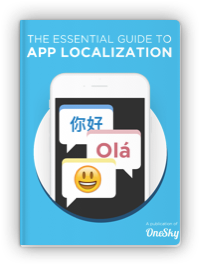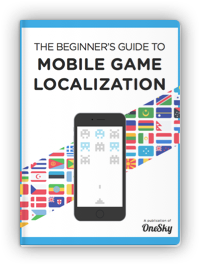The Ultimate Guide to Chinese Game Localization
China is one of the fastest-growing gaming markets worldwide and is projected to reach $55 billion and 781 million gamers by 2025. The domestic mobile game revenue hit $29.2 billion in 2020, a 30.9% increase from 2019. The market will continue to grow as smartphone usage increases—with 911 million people in China owning a smartphone today.
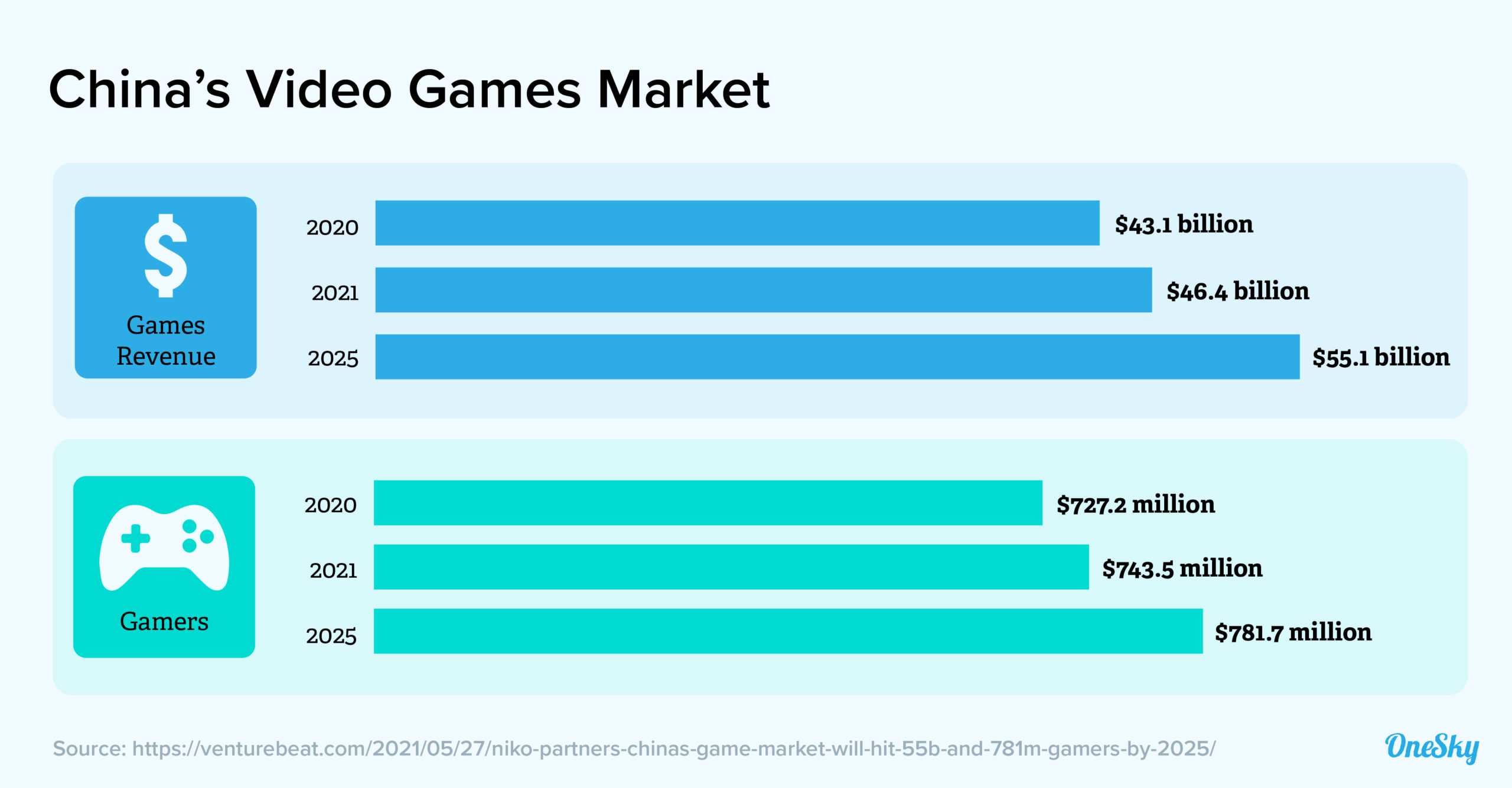
An Overview of the Chinese Gaming Market
Tencent and NetEase dominate the Chinese gaming market. Tencent leverages WeChat, its social messaging app with 1.2 billion active users, to connect gamers in real-time and boost the user base of its games.
Despite the popularity of video games, the People’s Republic of China (PRC) government has a long history of flip flopping between supporting and cracking down on the gaming culture.
After explosive growth in the early 2010s, the government imposed a 9-month moratorium on licensing new games in 2018. It recently issued regulations to limit children under 18 to a three-hour window on Friday, Saturdays, Sundays, and public holidays each week to play video games.
Additionally, a foreign game studio must partner with local publishers to enter the market (e.g., NetEase runs World of Warcraft in China.)
Yet, the Chinese gaming market continues to grow, partly thanks to government support. For example, the National Bureau of Statistics classified e-sports as a professional sport in 2019, while the municipal governments in Shanghai and Beijing support the development of e-sports in their cities. Also, universities offer curriculum in online gaming.
Despite the choppy waters, the Chinese gaming market offers tremendous opportunities for game developers. For example, the smartphone-oriented nature of the industry means it’s relatively easy to enter the market because a mobile game is faster and easier to develop than a PC game.
Also, more players prefer casual gameplay that offers social and interactive elements. The shorter attention spans require faster and less elaborate games, translating into a shorter time to market.
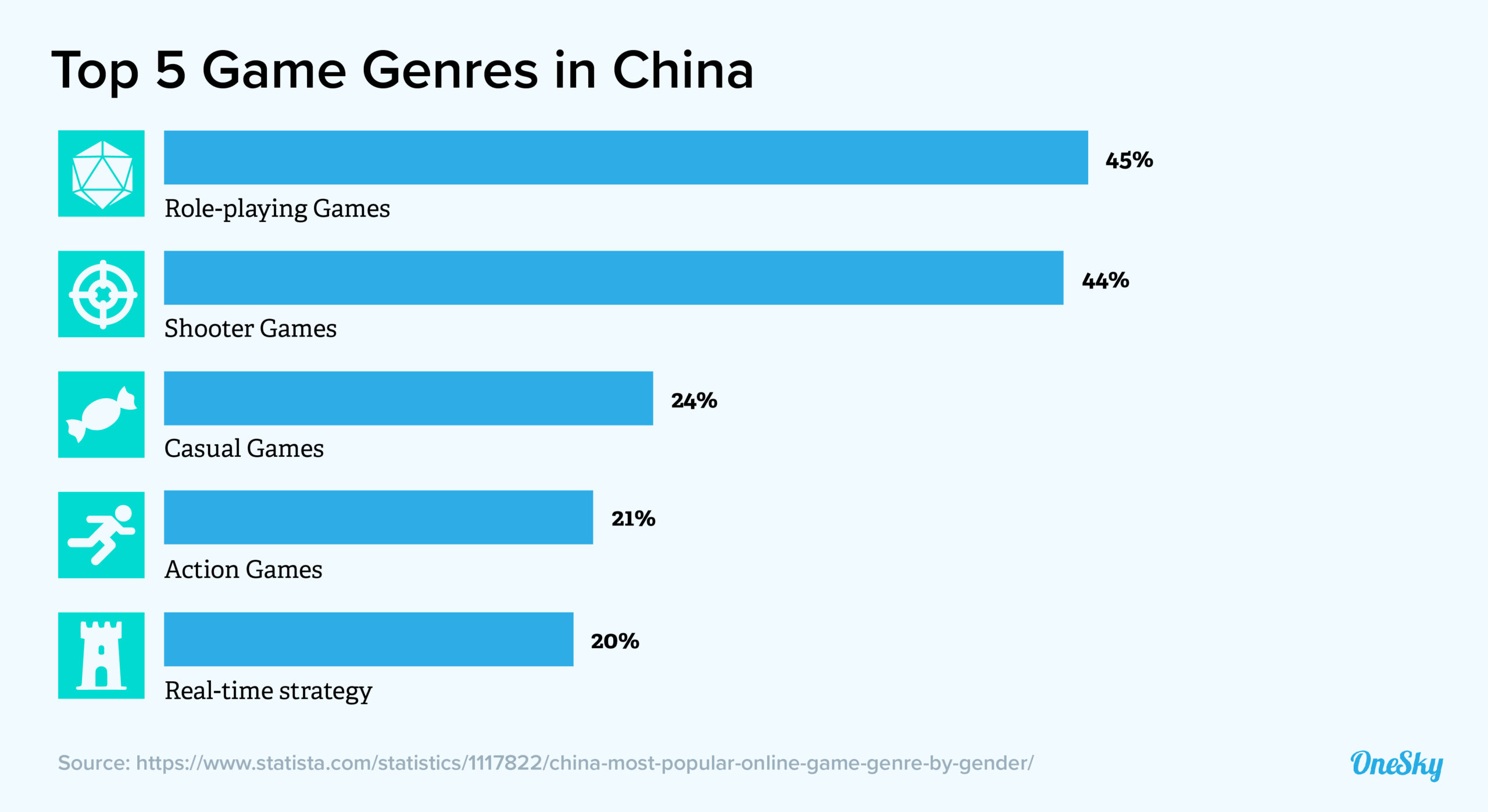
How To Localize Your Game For the Chinese Market
To tap into the vast potential of the Chinese gaming market, you must translate your game from English to Chinese while addressing the cultural and contextual differences between your home market and the Chinese audience.
Here’s what to keep in mind when localizing your game for the Chinese market:
Simplified vs. Traditional Chinese
There are two different sets of Chinese characters. Simplified Chinese is used in mainland China while traditional Chinese is used in Hong Kong and Taiwan. It’s critical to select the correct locale for your game: Simplified Chinese (zhCN), Traditional Chinese Taiwan (zhTW), or Traditional Chinese Hong Kong (zhHK).
Layout and Text Lengths
Chinese is a concise language, so the translated text often contains fewer characters than the original text. However, the characters are more complex, so you should use larger font size to ensure legibility. This means the content will take up more vertical space and potentially shift the layout of the interface.
User Interface (UI)
Most Chinese gamers prefer more colorful and denser UIs than their Western counterparts. Also, you may need to adjust the color palette, icon design, buttons, and more to suit the audience’s preferences. Local designers can help modify your UIs to make sure they meet the expectations of the local users.
Culturalization
China has a unique culture, and you may need to go beyond translation and transcreation to ensure that everything from storyline and game roles to conversations and music resonates with your audience. Work with local professional translators who understand the gaming industry to adjust your content for the market.
Storyline and Folk Elements
While some gamers may enjoy Western titles and celebrities, most prefer localized content based on traditional tales, myths, poetry, and novels. You may need to rebrand your game to incorporate elements that will resonate with the audience and preserve the emotional appeal of the original content.
Sensitive Topics
Game developers must tread lightly when it comes to political content. For example, Football Manager 2005 was banned because it considered Taiwan and Tibet as independent states. Also, scenes that involve blood, drugs, skulls, skeletons, gambling, sexual themes, or defamation of the Chinese government will likely get your game banned.
Naming
Should you rename in-game items, people, and locations or keep them in English? There’s no definitive answer to that question. Some terms can use a direct translation, while others may need to be renamed. Meanwhile, words like “CEO,” “WC,” “Okay,” and “Cool” are commonly used, so you can keep them as-is.
Payments and QR Codes
If you want to drive conversions, you need to make it easy for customers to pay you. Chinese consumers prefer mobile payment methods such as AliPay, TenPay, and UnionPay. Also, add a QR code whenever possible so gamers can scan and pay with their fingerprints instead of typing in a string of credit card numbers.
Short Product Cycle
Chinese gamers expect fast releases from game developers. To stay competitive, you must have a streamlined process to implement new features and localize them quickly to retain customers. Meanwhile, “lite” games have gained popularity because they can run on phones with less computing power.
Navigating the Complex Chinese Gaming Market
The many considerations can make capitalizing on the exploding Chinese gaming market challenging. If you want to enter this market successfully, you should partner with local experts to ensure a successful launch.
When you work with a language services provider (LSP), you can access professional translators who understand the local gaming market to translate your game from English to Chinese accurately and effectively.
A reputable LSP can help you use the appropriate cultural references while avoiding pitfalls that could get your game banned or boycotted. It also uses the latest translation management system (TMS) to streamline workflows and increase cost-efficiency.
OneSky is an end-to-end localization management platform with robust features such as TMS, translation memory, glossary, string context, and workflow automation. You’ll also have access to a dedicated localization manager and over 1,000 professional translators to help you navigate the complicated process.
To make localizing your game for the Chinese market even easier, we have developed a dedicated system to support Chinese localization. Try OneSky for free and see how you can simplify Chinese game localization.
link to Simplified v. Traditional post 12/14


 Written by -
Written by - 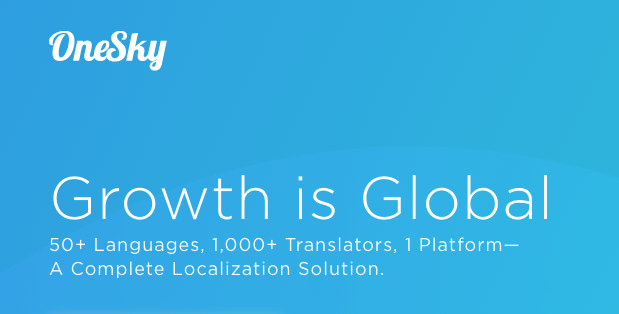

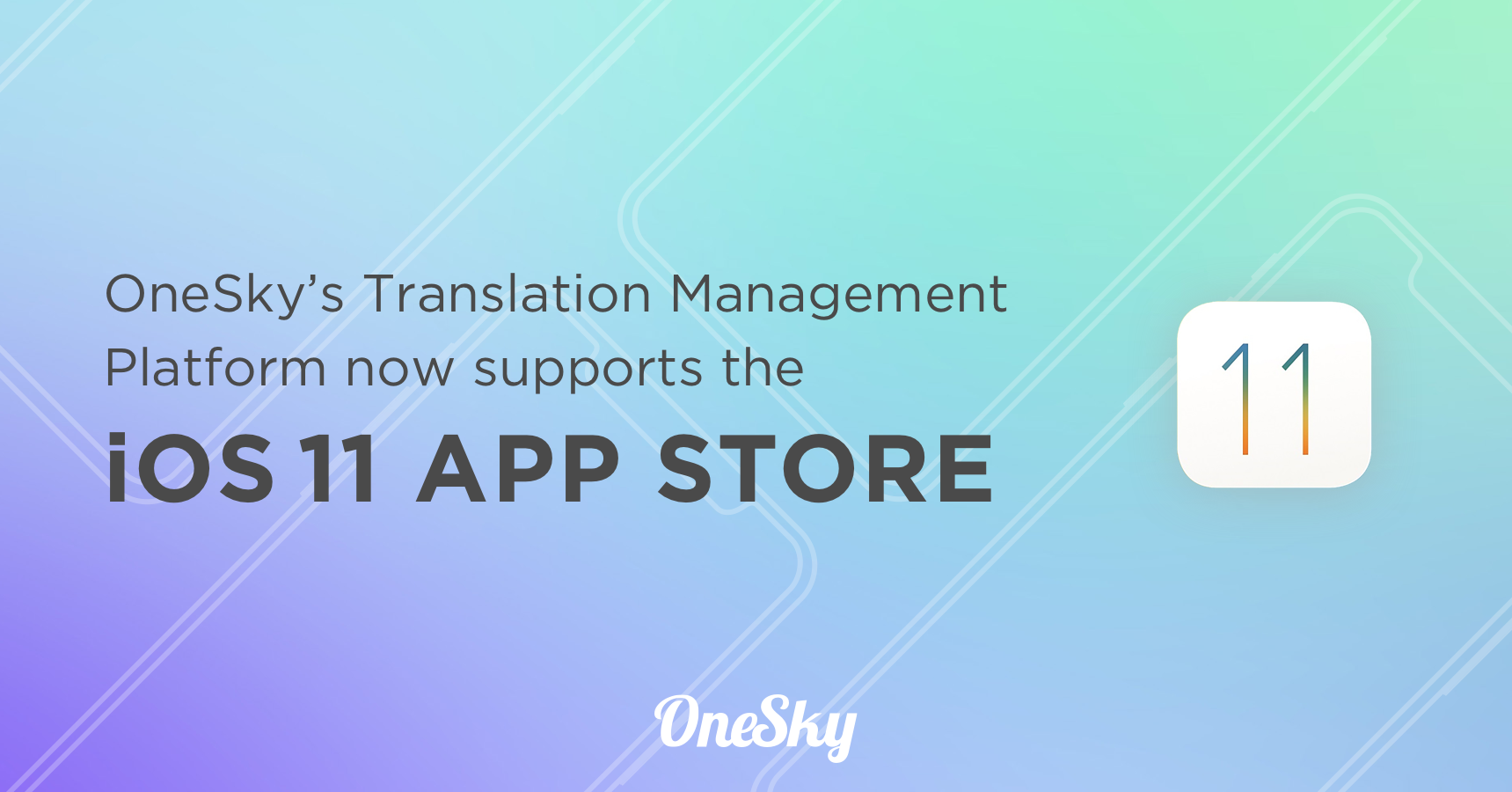
 Written by
Written by 
